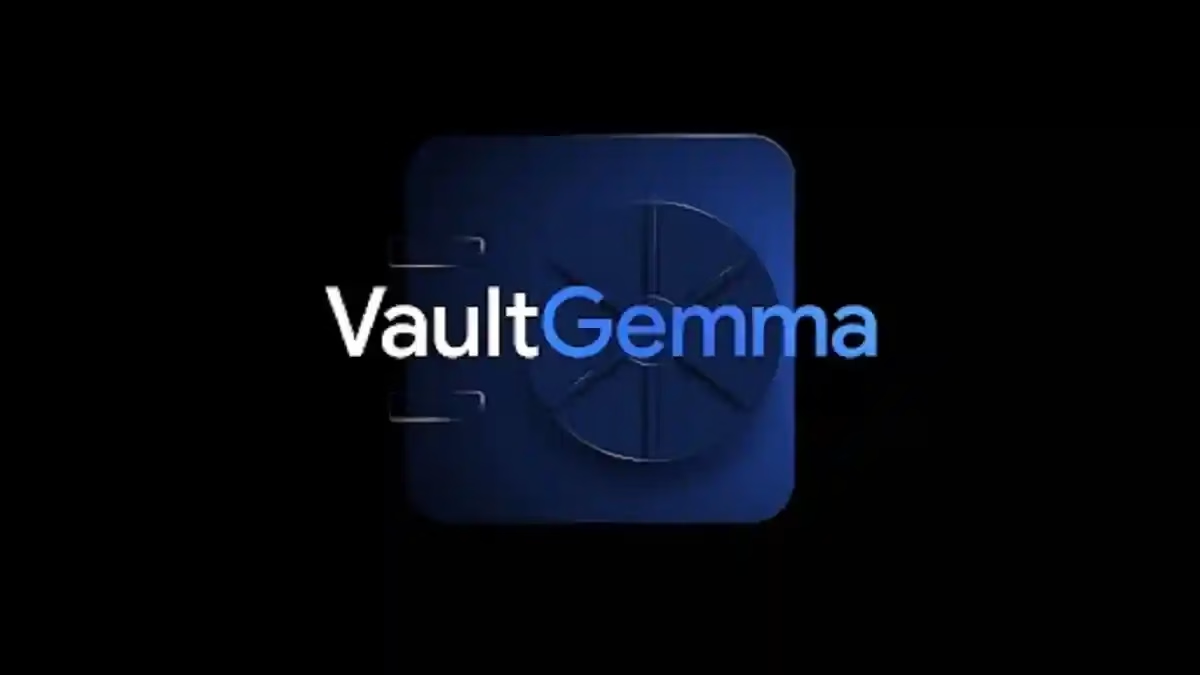VaultGemma Unveiled: Google Research Launches World's Most Capable Differentially Private LLM
VaultGemma is now available to the public, with its weights released on Hugging Face and Kaggle. This move is intended to foster wider adoption and further development within the AI community, particularly for applications handling sensitive data. The accompanying research paper, "Scaling Laws for Differentially Private Language Models," details the intricate balance between computational resources, privacy guarantees, and model utility, providing a roadmap for future private AI development.
Redefining Privacy in LLMs: The Challenge and the Solution
The integration of differential privacy into large language models presents a complex set of challenges. DP, a mathematically rigorous method for protecting individual data points by adding calibrated noise, can often lead to trade-offs in model performance and training efficiency. Specifically, applying DP noise can disrupt traditional scaling laws—the established relationships between model size, data, and performance—by impacting training stability and significantly increasing computational demands and batch sizes.
Google's research team tackled this head-on by developing new scaling laws specifically for DP language models. Their work, detailed in the accompanying paper, quantifies these compute-privacy-utility trade-offs, offering a clearer understanding of how to optimize training configurations. This foundational research guided the development of VaultGemma, enabling the creation of a powerful LLM without compromising on privacy.
The core of this advancement lies in understanding the "noise-batch ratio." Researchers found that how well a DP model learns is heavily influenced by the interplay between the added privacy noise and the size of the training batches. By meticulously experimenting across various model sizes and noise-batch ratios, they established empirical data that allows for precise predictions of training loss and optimal training configurations for a given compute, privacy, and data budget. This is a crucial step, moving beyond guesswork to a more scientific approach in building private AI.
VaultGemma's Architecture and Performance: A New Benchmark
VaultGemma, built upon the responsible and safe foundation of the Gemma models, represents a significant engineering feat. The 1B-parameter model was trained using a refined DP-SGD (Differentially Private Stochastic Gradient Descent) approach, incorporating advancements like Poisson sampling for optimal privacy guarantees with minimal noise. A key algorithmic innovation involved adapting to the challenges of Poisson sampling, which can create variable batch sizes. By leveraging their work on "Scalable DP-SGD," the team managed to process data in fixed-size batches while maintaining strong privacy protections.
The results are compelling. VaultGemma demonstrates no detectable memorization of its training data, a critical benchmark for privacy. In empirical tests, where the model was prompted with a 50-token prefix from a training document, it failed to generate the corresponding 50-token suffix, underscoring the efficacy of DP training.
Performance-wise, VaultGemma achieves utility comparable to non-private models from approximately five years ago, such as the GPT-2 1.5B model. While it shows a slight performance gap compared to its non-DP counterpart, Gemma 2 1B (ranging from 10-20% on various benchmarks like HellaSwag, BoolQ, and TriviaQA), this is a testament to the current state of DP training. The research highlights that this utility gap is expected to narrow with continued advancements in DP mechanism design. The model's formal privacy guarantee is sequence-level DP with (ε ≤ 2.0, δ ≤ 1.1e-10), ensuring robust protection for individual data sequences of 1024 tokens.
The Path Forward: Empowering Private AI Development
The release of VaultGemma is more than just a new model; it's an invitation to the broader AI community. By making this powerful, differentially private LLM openly available, Google aims to accelerate research and development in responsible AI. The insights gained from understanding DP scaling laws and the practical application in training VaultGemma provide a valuable blueprint for others looking to build privacy-preserving AI systems.
The team acknowledges that a utility gap still exists between DP-trained and non-DP-trained models. However, they express strong optimism that this gap can be systematically closed with further research into DP training mechanisms. VaultGemma, along with its accompanying technical report and research paper, is positioned as a catalyst for this progress, empowering developers and researchers to build the next generation of safe, responsible, and private AI solutions.
The implications for industries handling sensitive data—healthcare, finance, and beyond—are substantial. VaultGemma offers a tangible path towards leveraging advanced AI capabilities without compromising user privacy, a critical concern in today's data-driven world. It's an exciting time for AI, and VaultGemma is undoubtedly a major step in the right direction.
